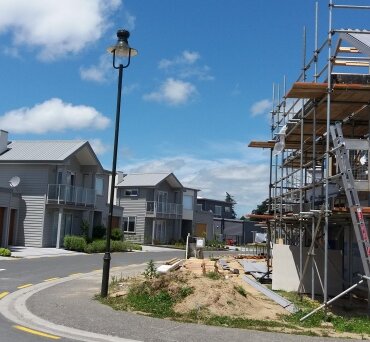
?
A general review of housing in the district has been delayed by six months because of a heavy workload at Waipā District Council.
Known internally as Draft Plan Change 21, the scope of work includes enabling affordable housing, strengthening urban design provisions and rezoning some growth cells from large lot residential to residential.
The change was to have been notified at the same time as the mandatory Draft Plan Change 26, which addresses residential zone intensification.
Council had hoped to have the two plan changes notified by August 20.
District Plan senior policy advisor Jo Cook-Munro told the Strategic Planning and Policy committee this week her policy team has a heavy workload and is operating on reduced capacity.
“One private plan has been lodged and there are four council plan changes underway, as well as two plan changes being made operative.
“It is anticipated that three further private plan changes will be lodged by the end of 2022, and there are other enquiries around private plan changes,” she said.
Another consideration is collaboration work underway with Hamilton City Council to adopt inclusionary zoning plan changes. Inclusionary zoning is new to New Zealand and is a planning approach where developers must deliver affordable housing within developments.
Hamilton’s plan change is tracking behind Waipā and not expected before mid-next year.
Waikato District Council, which takes in Tamahere and Matangi in The News’ circulation area, does not plan to introduce inclusionary zoning.
One of the technical reports already received for Draft Plan Change 21 came from Paua Architects on a character review of housing and streets in Cambridge, Te Awamutu and Kihikihi. Among other things it suggests council should prepare design guidelines for infill housing next to heritage properties.









